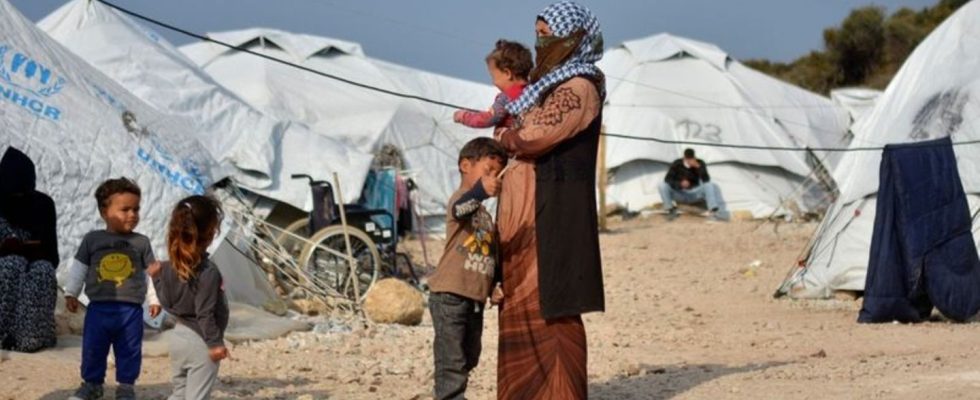migration
Federal government: Planned asylum crisis regulation critical
A woman stands with her children in the Kara Tepe refugee camp near Mytilene on Lesvos. photo
© Panagiotis Balaskas/AP/dpa
The federal government has reservations about the proposal for an EU asylum regulation. The plans provide for special rules for member states if they are overburdened by large crowds.
In the struggle over the planned reform of the EU’s asylum policy, a new dispute is looming. This time, the focus of the controversy is a regulation that is intended to allow overburdened member states to lower the applicable standards in exceptional situations. The The German government is critical of the proposal, on which the Spanish EU Council Presidency wants to reach an agreement by the end of the month. “The proposed regulation is still subject to review within the federal government,” said a spokesman for the Federal Ministry of the Interior of the German Press Agency on request.
On June 8, the EU interior ministers voted with a sufficiently large majority in favor of comprehensive reform plans. Asylum applications from migrants from countries of origin with a recognition rate of less than 20 percent are to be examined within twelve weeks at the EU’s external borders. During this time, they want to oblige those seeking protection to stay in strictly controlled reception facilities. Those who have no chance of asylum should be sent back immediately. It is conceivable that the EU Parliament will push through changes. Now the European Parliament and the EU states are negotiating the plans, and in the end Germany will have to position itself again.
The proposal for the new crisis regulation now provides, among other things, longer deadlines for the registration of asylum applications at the external borders, as well as the possibility of lowering standards for accommodation and care. In addition, according to the Council’s ideas, those seeking protection in crisis situations should be obliged to stay longer than twelve weeks in the reception facilities near the border. For example, a situation in which another country “instrumentalizes” refugees, such as recently on the Belarusian-Polish border, should be considered a crisis situation.
“Since the federal government abstained from voting on the so-called instrumentalization regulation in December 2022, it is particularly critical of the regulations on instrumentalization situations contained in the crisis regulation,” said the Federal Ministry of the Interior. The federal government is involved in the negotiations to work towards improving the standards for those seeking protection and towards a uniform, manageable procedure for the member states in crisis situations.

